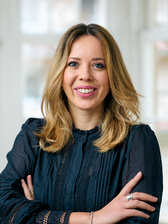2022
Dr. Danielle Heberle Viegas (Munich, Germany) / Prof. Dr. Patrícia Isabel Lontro Marder Vieira (Coimbra, Portugal) / Prof. Dr. Antoine Acker (Geneva, Switzerland)
Resilient forest cities: Utopia and Development in the Brazilian Amazon (20th and 21st Centuries)
PD Dr. Manuel Schramm (Leipzig, Germany) / Prof. Dr. Simon Runkel (Jena, Germany)
Johanngeorgenstadt als verschwindende Stadt. Eine historische und geographische Mikrologie des Verlusts
Prof. Dr. Oksana Zaporozhets / Dr. Lela Rekhviashvili (Leipzig, Germany)
Cities ‘becoming lost’: the ruptures of grand narratives of modernity
2021
Prof. Dr. Caitlin Frances Bruce (Pittsburgh, USA) / Prof. Dr. Ricardo Klein Caballero (Valencia, Spain) / Dr. Curry Chandler (Pittsburgh, USA)
Lost and Found: Transnational Cultural Practices as Infrastructure for Memory, Reinvention, and Discovery in Transitioning Cities
Dr. Bálint Kovács (Halle, Germany) / Professor Dr. Elke Hartmann (Berlin, Germany)
Lost-but-found: Armenian Capital Ani at Contested Crossroads
2020
Prof. Dr. Joseph Heathcott (New York, USA)
Life in the Rust Archipelago: Natural and Human Ecologies after Capital Flight
Dr. Natalia Moragas / Dr. Alessandra Pecci (Barcelona, Spanien)
Living in the ruins of the city of Teotihuacan (MexicoLiving in the ruins of the city of Teotihuacan (Mexico)
Dr. Khodadad Rezakhani (Princeton, USA)
A City of Many Cities: Ctesiphon, Baghdad, and the Memory of an Abandoned Past in Late Antique and Early Islamic Iraq
2019
Dr. Stephanie Döpper (Frankfurt am Main, Germany) / PD Dr. Thomas Schmidt-Lux (Leipzig, Germany) / Dr. Birgit Mershen (Bochum, Germany)
Die verlassenen Lehmziegelsiedlungen des Zentraloman: Zwischen Verklärung und Vernachlässigung
Prof. Dr. Daniel Monterescu (Budapest, Hungary)
Cities Lost and Found: The Social Life of Ruins in Israel/Palestine, 1882 to the Present
Prof. Dr. Henny Piezonka (Kiel, Germany) / Dr. Sampildonov Chuluun (Ulaanbaatar, Mongolia) / Prof. Dr. Martin Oczipka (Dresden, Germany) / Dr. Birte Ahrens (Kiel, Germany)
Abandoned cities in the steppe: Roles and perception of Early Modern religious and military centres in Nomadic Mongolia
Prof. Dr. Karen Radner / Dr. Jamie Novotny (München, Germany)
Living Among Ruins: The Experience of Urban Abandonment in Babylonia
Dr. Julian Schreyer (Erlangen-Nürnberg, Germany) / Dr. Felix Henke (München, Germany)
Spuren von Städten. Formen des Umgangs mit deurbanisierten Räumen der frühen Kaiserzeit
Prof. Dr. Magdalena Waligorska (Bremen, Germany)
Mapping the Archipelago of Lost Towns: Post-Holocaust Urban Lacunae in the Polish-Belarusian-Ukrainian Borderlands



